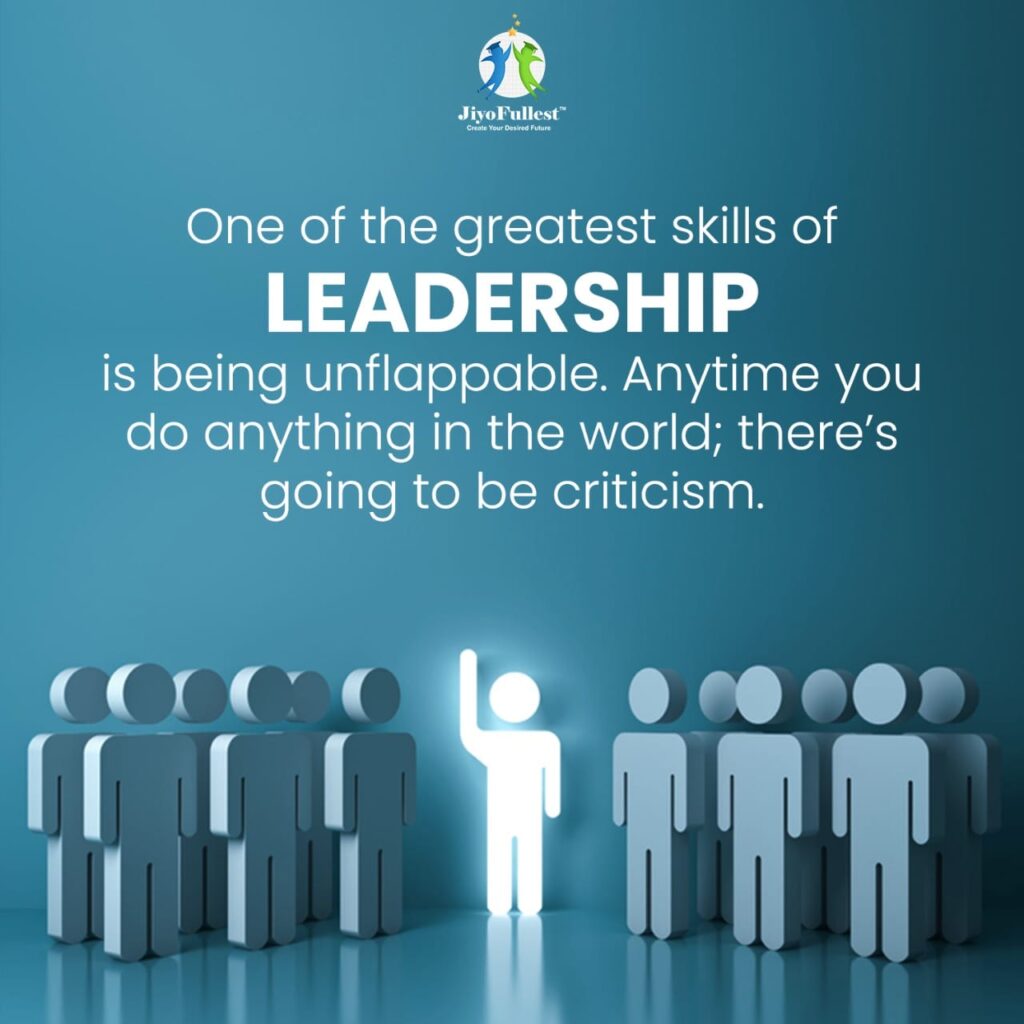In 2025, strong leadership will be more critical than ever, given the fast-paced changes in workplaces, technology, and team dynamics. Effective leaders will need a well-rounded skill set to inspire, innovate, and guide diverse teams through complex challenges.
Mastering key skills like adaptability, emotional intelligence, and strategic thinking is essential for navigating today’s dynamic environment. This blog covers the top 10 leadership skills to cultivate, helping you stay competitive and impactful in your role, regardless of your industry or experience level.
Table of Contents
ToggleWhat Are Leadership Skills, and Why Are They Important?
Leadership skills encompass the abilities and traits that empower individuals to guide, motivate, and influence others toward achieving common goals.
These skills are vital because they promote team cohesion, drive organizational success, and foster a positive, productive environment. Effective leadership skills, such as communication, adaptability, and emotional intelligence, help leaders navigate complex challenges, inspire their teams, and make well-informed decisions.
In today’s AI driven world, strong leadership is essential not only for maintaining a competitive edge but also for creating a culture of trust and growth within any organization.

The Top 10 Core Leadership Skills You Need in Every Role
Leadership qualities vary from person to person and situation to situation, but some common traits distinguish effective leaders:
Leadership qualities encompass a diverse range of attributes and skills that enable individuals to effectively guide, inspire, and influence others toward achieving common goals and objectives. While the specific qualities may vary depending on the context and individual preferences, here are some key leadership qualities:
1. Vision
Effective leaders have a clear vision of the future and inspire others to share in that vision. They articulate goals and priorities with clarity and conviction, providing direction and purpose for their teams.
2. Integrity
Integrity is the foundation of trust and credibility in leadership. Ethical leaders uphold honesty, transparency, and consistency in their actions and decisions. They adhere to high moral and ethical standards, earning the respect and loyalty of their followers.
3. Empathy
Empathetic leaders demonstrate understanding, compassion, and respect for the needs and perspectives of others. They listen actively, acknowledge diverse viewpoints, and foster a culture of inclusivity and belonging within their teams.
4. Resilience
Leadership often entails facing challenges, setbacks, and adversity. Resilient leaders possess the ability to bounce back from setbacks, learn from failures, and persevere in the face of obstacles. They maintain composure and optimism, inspiring confidence and determination in others. Read: Why is resilience important for a leader
5. Communication
Effective communication is essential for building trust, fostering collaboration, and aligning teams toward common objectives. Leaders communicate with clarity, confidence, and authenticity, adapting their message to resonate with diverse audiences and stakeholders.
6. Decision-making
Leaders must make timely and informed decisions, weighing risks and rewards to drive progress and achieve goals. They gather relevant information, analyze alternatives, and consider the potential impact on stakeholders before making decisions.
7. Innovation
Innovative leaders embrace creativity, experimentation, and forward-thinking approaches to problem-solving. They encourage innovation and continuous improvement within their teams, fostering a culture of curiosity, exploration, and learning.
8. Adaptability
In today’s rapidly changing environment, leaders must be adaptable and flexible in their approach. They anticipate and respond to changes in technology, market trends, and business conditions, adjusting strategies and priorities as needed to stay competitive and relevant.
9. Empowerment
Effective leaders empower their team members, delegating authority and providing opportunities for growth and development. They inspire confidence, autonomy, and accountability, enabling individuals to contribute their unique talents and expertise to the collective effort.
10. Courage
Courageous leaders are willing to take calculated risks, challenge the status quo, and advocate for what they believe is right. They speak up against injustice, confront difficult conversations, and champion bold ideas and initiatives, even in the face of resistance or uncertainty.
These are just a few examples of the many qualities that contribute to effective leadership. Ultimately, successful leaders combine a combination of these traits, continually evolving and adapting their approach to meet the needs of their teams and organizations. By cultivating these qualities and leading by example, individuals can make a positive impact and inspire others to reach their full potential.
Suggested Read: Leadership Quotes by Ratan Tata
How to Develop Leadership Skills?
Leadership qualities are not innate; they can be developed and honed over time through self-awareness, practice, and continuous learning. Developing leadership qualities requires dedication, discipline, and a growth mindset. By embracing challenges, seeking feedback, and committing to personal and professional growth, leaders can unlock their full potential.
Here are some key steps to help you develop your leadership potential:
Self-Reflection and Assessment
Take the time to reflect on your strengths, weaknesses, values, and goals. Self-awareness is the foundation of effective leadership. Identify areas where you excel and areas where you can improve.
Continuous Learning
Leadership is an ongoing journey of growth and development. Stay curious and seek opportunities to learn from others, whether through books, workshops, seminars, or mentorship programs.
Embrace Challenges
Challenge yourself to step outside your comfort zone and take on new responsibilities. Embracing challenges allows you to develop resilience, problem-solving skills, and the ability to inspire others in times of adversity.
Seek Feedback
Feedback is essential for growth. Solicit feedback from colleagues, mentors, and peers to gain insights into your leadership style and areas for improvement. Be open to constructive criticism and commit to continuous self-improvement.

Leadership Skills for CEO
CEOs play a pivotal role in setting the vision, strategy, and direction of an organization. Here are some key qualities that distinguish successful CEOs:
Visionary Leadership
Effective CEOs have a clear vision for the future and inspire others to share in that vision. They communicate goals and priorities with clarity and conviction.
Strategic Thinking
CEOs possess the ability to think strategically and anticipate future trends and challenges. They make informed decisions based on data, analysis, and intuition.
Decisiveness
CEOs are decisive leaders who can make tough decisions swiftly and confidently. They weigh risks and rewards, seek input from stakeholders, and take decisive action when necessary.
Qualities of Ethical Leadership
Ethical leadership is the cornerstone of trust, integrity, and accountability within an organization. Here are some essential qualities of ethical leadership:
Integrity
Ethical leaders uphold honesty, transparency, and consistency in their actions and decisions. They lead by example and adhere to high moral and ethical standards.
Empathy
Empathetic leaders demonstrate understanding, compassion, and respect for the needs and perspectives of others. They prioritize building strong relationships and fostering a culture of inclusivity and belonging.
Accountability
Ethical leaders take ownership of their decisions and accept responsibility for the outcomes. They hold themselves and others accountable to ethical principles and organizational values.Qualities

Executive Leadership Qualities
Executive leaders are responsible for driving organizational performance and achieving strategic objectives. Here are some essential qualities of executive leadership:
Strong Communication
Effective executives communicate with clarity, confidence, and authenticity. They articulate goals, expectations, and priorities effectively to align teams and inspire action.
Strategic Planning
Executive leaders develop and execute strategic plans to drive growth, innovation, and sustainability. They identify opportunities for improvement and allocate resources strategically to achieve desired outcomes.
Team Building and Collaboration
Executive leaders foster a culture of collaboration, teamwork, and innovation within their organizations. They build diverse and inclusive teams, empower employees, and foster a culture of trust and mutual respect.
In conclusion, developing leadership qualities is a lifelong journey that requires dedication, self-awareness, and continuous learning. By focusing on ethical principles, strategic thinking, and effective communication, aspiring leaders can unlock their full potential and make a positive impact in their organizations and communities.
FAQs on Leadership Skills
What are Ethical Leadership Qualities?
Ethical leadership is characterized by integrity, empathy, and accountability. Leaders who prioritize ethical principles foster trust, loyalty, and commitment within their organizations.
How can we Improve Leadership Qualities?
Leadership is a journey of continuous improvement. By focusing on self-awareness, learning, and development, leaders can enhance their effectiveness and impact over time.
What are Good Leadership and Management Qualities?
Good leaders possess a combination of leadership and management qualities, including communication, decision-making, strategic thinking, and team building.
What is the best answer for Leadership Skills in an Interview?
The best answer for leadership Skills depends on individual strengths, values, and goals. Effective leaders prioritize self-awareness, integrity, empathy, and continuous learning.
In an interview, the best answer for leadership qualities should succinctly highlight key attributes while demonstrating self-awareness and alignment with the organization’s values. Here’s a concise yet comprehensive response:
“I believe effective leadership is built on a foundation of integrity, empathy, and vision. By leading with honesty and transparency, I strive to foster trust and credibility within my team. Empathy allows me to understand and support the needs of individual team members, creating a culture of inclusion and collaboration. With a clear vision for success, I empower my team to achieve their full potential through communication, accountability, and continuous learning. These qualities enable me to navigate challenges, inspire others, and drive meaningful results while fostering a positive and dynamic work environment.”
What are Women Leadership Qualities?
Women leaders bring unique perspectives, strengths, and qualities to leadership roles. Embracing diversity and inclusion in leadership fosters innovation, creativity, and organizational success. Read: Women Empowerment quotes
Different Qualities of Leadership
Leadership qualities vary based on individual personality, style, and context. Effective leaders leverage their strengths and adapt their approach to meet the needs of diverse teams and situations.
What are Entrepreneurial Leadership Qualities?
Entrepreneurial leaders are innovative, risk-tolerant, and resilient. They embrace uncertainty, seize opportunities, and inspire others to pursue bold ideas and initiatives.
How to Improve Leadership Qualities?
Improving leadership qualities requires self-reflection, learning, and practice. By seeking feedback, setting goals, and embracing continuous growth, leaders can enhance their effectiveness and impact.
What are Good Leadership Skills and Qualities?
Good leadership skills and qualities include communication, emotional intelligence, adaptability, resilience, empathy, and strategic thinking
What Are the Qualities of a Leadership?
The qualities of a leader include integrity, vision, empathy, resilience, decisiveness, humility, authenticity, and the ability to inspire and motivate others.
Some Fun Too is Needed: Angel Number Calculator

